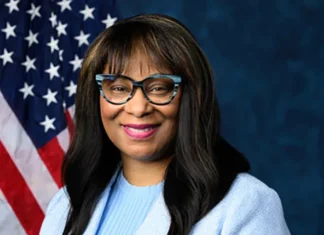
by Alexa Spencer
The number of Americans living without health insurance hit record lows during the pandemic due to the government’s push for coverage, but experts like Sara Collins — a senior scholar at the Commonwealth Fund — says despite these wins, “the job isn’t done.”
A recent survey conducted by Commonwealth reveals that while more Americans than ever have coverage, many are struggling to afford the care they need or aren’t covered at all.
“Millions of people are still uninsured,” Collins told Word In Black in a phone interview. “Many people have unstable coverage, so they have gaps in their insurance.”
Nearly half of working Americans access health insurance through their employers, yet — according to the survey — 29% of people with employer coverage say the plans don’t meet their needs.
Collins says a lot of it has to do with cost, that the programs “can have very high deductibles, high out of pocket limits, and that leaves people very exposed to healthcare costs when they do get care.”
What Are the Health Consequences of Being Underinsured?
Not being able to afford an insurance plan can cause people to avoid healthcare. 42% of respondents in the survey reported skipping or putting off their care for later because of the cost.
“People who are underinsured report high rates of delays in care, not getting care when they need it,” she says. “And those who do get care, report high rates of problems paying their medical bills.”
And when those bills don’t get paid, they turn into debt that can affect a person’s livelihood.
The medical debt crisis is particularly hard on the Black community. 27% of Black households carry medical debt, compared to 17.2% of white households, for example.
And according to the Commonwealth survey, these unpaid bills are more likely to be sent to a collection agency. This can affect a person’s credit scores and prevent them from making purchases — like buying a home.
Just earlier this year, the Biden-Harris Administration announced a plan to reduce the impact of unpaid medical bills on credit and eliminate it as a factor in the mortgage approval process.
Why Are So Many Black People Uninsured?
Even though the Affordable Care Act’s Medicaid expansion made it possible for more people to gain coverage, Black adults are still more likely than others to be uninsured.
Since the expansion process began in 2014, 38 states and the District of Columbia have opted-in for the federal funding.
However, 12 states — mostly Southern states with the country’s largest Black populations — have yet to expand the public medical coverage for its residents.
Among them are Mississippi, Alabama, and Georgia — states where Black mothers are dying at disproportionately high rates and strokes are a leading cause of death.
“Were those states to expand, you would see a large increase in coverage rates among Black adults,” Collins says.
How Can More Black People Access Coverage?
The Commonwealth Fund suggests several policy recommendations that could support the coverage needs of the Black community — including allowing states to maintain continuous Medicaid eligibility without the need to apply for a federal waiver.
Additionally, the organization suggests that Congress provide a federal “fallback” option for Medicaid-eligible residents living in the unexpanded states. This could knock down uninsured rates for Black people in those states by 27%, according to the Urban Institute.
Collins says, “these are really minor adjustments that could really have significant effects, particularly for Black adults and children.”















